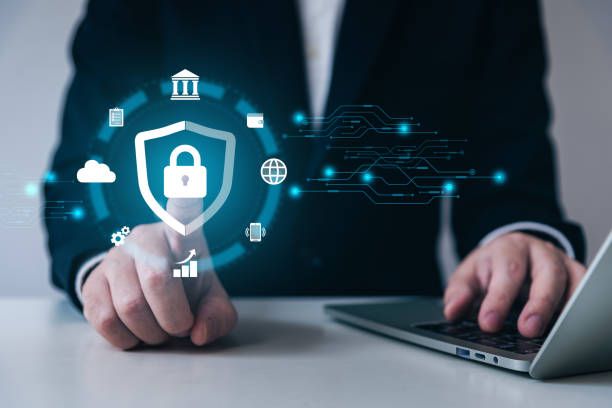How to safeguard your business by using practical cybersecurity measures
Safeguarding your business against cyber threats is crucial for long-term success. Here are practical tips to enhance your cybersecurity
Cybersecurity has become a critical aspect of running a successful business in today's digital age. With the increasing number of cyber threats and data breaches, it's essential for businesses to prioritise the protection of their sensitive information and secure their networks. In this fast-paced and interconnected world, businesses of all sizes are vulnerable to cyber-attacks.
A single security breach can have severe
consequences, including financial loss, damage to reputation, and compromised customer trust. Therefore, taking proactive measures to protect your business from cyber threats is paramount.
What is cybersecurity?
Before diving into cybersecurity tips, it's crucial to have a fundamental understanding of what cybersecurity entails. Cybersecurity refers to the practice of protecting computer systems, networks, and data from unauthorised access, theft, or damage. It involves implementing various technologies, processes, and best practices to safeguard against potential threats.
Cybersecurity is a dynamic field that evolves alongside technological advancements and the ever-changing landscape of cyber threats. It encompasses a wide range of practices, including network security, data protection, risk assessment, incident response, and employee training. The primary goal of cybersecurity is to ensure the confidentiality, integrity, and availability of information, as well as protect the overall well being of businesses and their stakeholders.
Assessing business's vulnerabilities
Every business has unique vulnerabilities that cybercriminals may exploit. To effectively safeguard your business, you must conduct a thorough assessment of your organisation's cybersecurity posture. This assessment involves identifying potential risks, evaluating existing security measures, and determining areas that require improvement.
By understanding your vulnerabilities, you can develop a targeted cybersecurity strategy. Once you have identified the potential risks and vulnerabilities within your business, it is essential to evaluate your existing security measures. This evaluation will help you understand the effectiveness of your current cybersecurity practices and identify any gaps or weaknesses.
Consider conducting penetration testing or vulnerability scanning to uncover any vulnerabilities that may have been overlooked.
During the assessment process, pay close attention to areas such as network security, data protection, access controls, and employee awareness. Evaluate your network infrastructure to ensure it is adequately protected with firewalls, secure Wi-Fi protocols, and intrusion detection systems. Assess the security of your data by implementing encryption protocols and access controls that limit who can access sensitive information.
Implementing strong passwords and authentication
Passwords are the first line of defense against unauthorised access to your systems and data. Implementing strong passwords and multifactor authentication adds an extra layer of security. Encourage your employees to use complex passwords, avoid using the same password for multiple accounts, and regularly update them. MFA, such as biometric or token- based authentication, provides an additional level of protection.
In addition to strong passwords, implementing multifactor authentication further enhances the security of your systems and data. MFA requires users to provide two or more pieces of evidence to verify their identity, significantly reducing the risk of unauthorised access. Biometric authentication, such as fingerprint or facial recognition, offers a secure and convenient way to authenticate users. Token-based authentication, where users possess a physical device like a security key or smart card, adds an additional layer of protection.
Encourage your employees to enable MFA for all their accounts, especially those with access to sensitive information. This extra step ensures that even if a password is compromised, unauthorised individuals will still be unable to gain access without the second factor of authentication.
Securing your network and data
Protecting your network and data is crucial to safeguarding your business. Implementing a robust network security infrastructure involves using firewalls, intrusion detection systems, and virtual private networks. Additionally, data encryption ensures that even if data is intercepted, it remains unreadable without the encryption key. Regularly monitor your network for any suspicious activity and promptly address any identified threats.
Furthermore, securing your network and data requires a proactive approach. Regularly updating and patching your systems is essential to address any vulnerabilities or weaknesses that may be exploited by cyber attackers. Software updates often include security patches that fix known vulnerabilities, so it's crucial to keep your systems up to date.
Educating your employees
Your employees play a significant role in maintaining the security of your business. Conduct regular cybersecurity awareness training sessions to educate your staff about the importance of cybersecurity, common threats, and best practices. Teach them how to recognise phishing attempts, avoid suspicious email attachments or links, and report any potential security incidents promptly. Promoting a culture of cybersecurity awareness within your organisation is crucial for overall protection.
In addition to regular cybersecurity awareness training, fostering a culture of cybersecurity within your organisation is essential for long-term protection. Encourage open communication among employees regarding potential security concerns and provide channels for reporting suspicious activities. Implementing a clear and effective incident response plan will ensure that any security incidents are promptly addressed and mitigated.
By empowering your employees to be proactive in protecting sensitive information and reporting potential threats, you create a strong defense against cyber-attacks.












